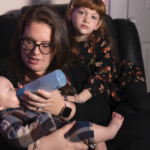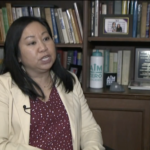Gov. Andrew Cuomo’s recent state budget included no funding to increase the paltry salaries of Direct Support Professionals (DSPs) who are on the frontlines working with individuals living with developmental disabilities and mental illness.
A DSP’s job is to assist individuals in developing daily living skills that will advance their ability to live independently and become better integrated into their communities or in the least-restrictive environment possible.
In order to get an up close and personal view of this matter I had a conversation Drs. Lawrence and Ronda Fein, an orthopedic surgeon and clinical psychologist. They are the parents of Jonathan, a 33-year-old man living with severe autism.
Ronda Fein shared her understanding about what a DSP’s training entails: “They require extensive training on medication administration, behavior management, HIPAA compliance (data privacy and security provisions for safeguarding medical records) and driving a van with wheelchair accommodation. In addition, they must have excellent social skills and the empathy necessary to support clients’ needs.”
Despite the fact that DSPs’ work is essential, they do not make a living wage. Why should we pay attention to this? Without the consistency of relationships and quality care that a well-trained DSP provides, thousands of New Yorkers like Jonathan will be shortchanged and their quality of life compromised.
As state Senator David Carlucci, chairman of the Committee on Mental Health and Developmental Disabilities and a champion for a living wage, asserted to the Rockland County Times, “a living wage is a wage that is high enough to maintain a normal standard of living, but this is not the case for DSPs.”
Carlucci cited a 2017 report by the President’s Committee for People with Intellectual Disabilities, which reported the average DSP wage to be $10.72 per hour, which means most workers must hold extra jobs to pay their bills. The report went on to say that “the poverty level in New York State stands at $12,060 a year for an individual and $24,600 for a family of four. A DSP who makes $10.72 an hour would make about $22,298 if they worked 40 hours a week.”
Although this salary may exceed the poverty line, it is not enough to live in Nassau County, where the average household income is $126,112, according to Point2Homes.com. This is more than five times higher than what a DSP takes home.
In 2017, according to the State Department of Taxation and Finance, the median cost of a home in Nassau County was $500,000. A DSP could never afford a home in Nassau let alone bank any savings. As Carlucci points out, “When you factor in taxes, utility costs, groceries and gas, a DSP cannot make ends meet.”
There are about 100,000 DSPs who work primarily in nonprofits helping 130,000 New Yorkers living with developmental disabilities and mental illness. And the turnover rate is high at 45 percent, which interrupts the continuity of care and adds months and years to already untenable waiting lists.
The Feins said almost all of Jonathan’s DSP workers over the last 10 years have been wonderful, caring people who have a natural calling for this type of work. Nevertheless, “every time there is a DSP that leaves for a better paying job, Jonathan suffers and experiences the loss in a profound way. This is because he cannot express himself and relies on people who get used to understanding his nonverbal communication for what he needs and wants.”
Someone needs to explain this to the governor. The only way for DSPs to see an increase in their salaries is for Gov. Cuomo to put additional funding in the budget.
You can help to change this untenable situation by contacting your state representative in Albany and asking them to urge the governor to establish a living wage for those who have chosen careers aimed at improving the quality of life for our most vulnerable loved ones.
Andrew Malekoff is the Executive Director of North Shore Child & Family Guidance Center, which provides comprehensive mental health services for children from birth through 24 and their families.













